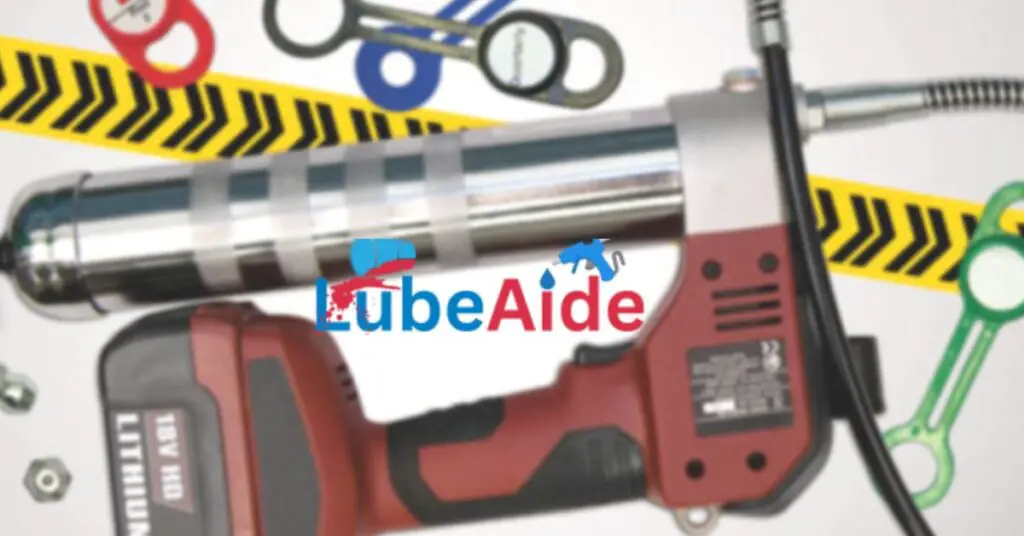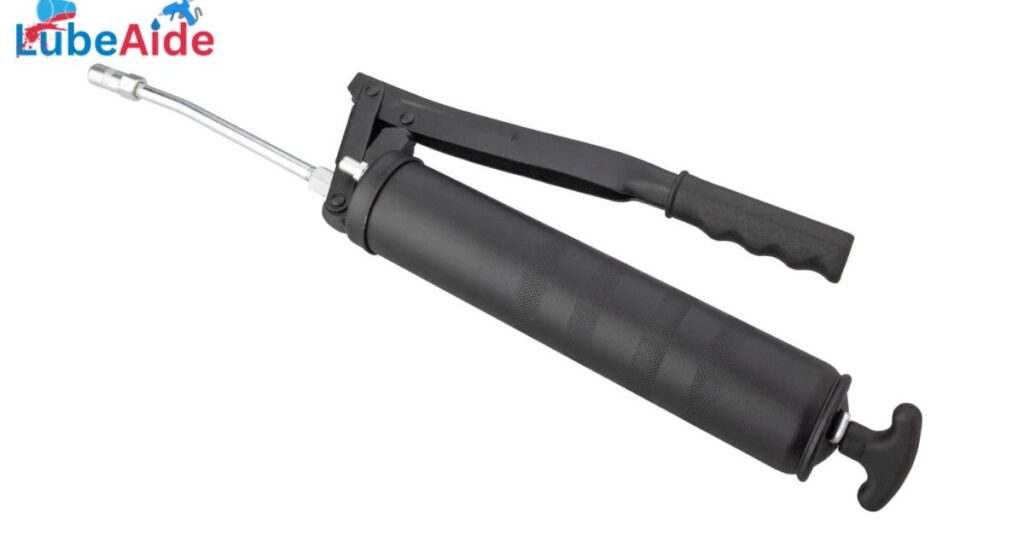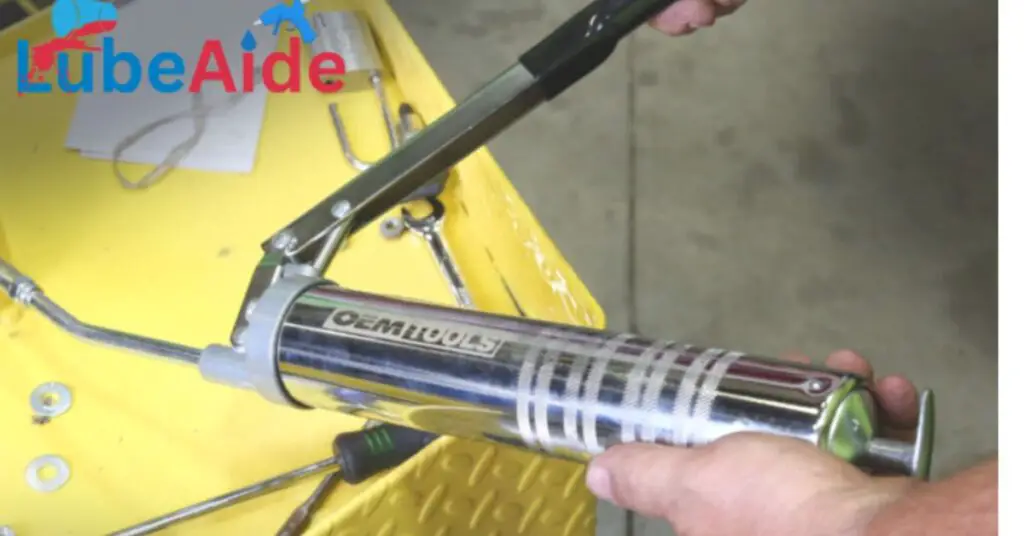Grease guns are an essential tool for lubricating various mechanical parts, but they can be frustrating when they start to leak. Not only does a leaky grease gun create a mess, but it can also affect the performance of your equipment. Here, we will provide you with a troubleshooting guide to help you understand Why Does Grease Gun Leak and what you can do to fix it.
Some Signs That My Grease Gun Is Leaking
There are several signs that your grease gun may be leaking, including:
- Grease on the exterior of the gun: If you notice grease on the outside of the grease gun, it may be a sign that grease is leaking out of the gun.
- Difficulty pumping grease: If you find it harder than usual to pump grease into your equipment, it could be a sign that the grease gun is leaking.
- Unusual sounds: If you hear unusual sounds, such as hissing or sucking, while using the grease gun, it could be an indication that grease is leaking.
- Grease on the equipment: If you notice grease on the equipment you are lubricating, it may be a sign that the grease gun is leaking.
- Reduced lubrication effectiveness: If the equipment you are lubricating is not performing as well as it should, it could be a sign that the grease gun is leaking and not delivering the proper amount of grease.
If you notice any of these signs, it is important to investigate the cause of the issue and repair or replace the grease gun as necessary to prevent equipment damage and maintain proper lubrication.
Possible Causes of Grease Gun Leaks

Before we delve into the troubleshooting guide, let’s first understand the possible causes of grease gun leaks. The most common reasons are:
- Faulty seals – Over time, the seals on your grease gun can wear out, causing leaks. This can be due to constant use or exposure to extreme temperatures.
- Overfilling – Overfilling can cause excessive pressure, leading to leaks.
- Incorrect grease – Using the wrong type of grease can cause leaks. It’s essential to ensure that you’re using the proper lubricant for your equipment.
- Loose fittings: If the fittings on the grease gun are not tightened properly, they can cause leaks.
- Damaged hose or nozzle: If the hose or nozzle is damaged or worn, it can cause grease to leak out.
- Contaminants in the grease: If there are contaminants, such as dirt or debris, in the grease, it can cause a leak.
- Incorrect grease type: Using the wrong type of grease in the grease gun can cause it to leak.
- Improper storage: If the grease gun is not stored properly, such as in a location that is too hot or cold, it can cause the grease to become too thin or thick, which can cause leaks.
To prevent leaks, it’s important to regularly inspect the grease gun, replace worn or damaged parts, and ensure that the correct type of grease is being used.
Troubleshooting Guide for Grease Gun Leaks

Now that you know the possible causes of grease gun leaks let’s dive into the troubleshooting guide.
Step 1: Check the Seals
The first thing you need to do when troubleshooting a leaky gun is to check the seals. Look for any visible signs of damage, such as cracks or tears. If you notice any damage, replace the seals immediately.
Step 2: Ensure Proper Grease Level
Ensure that you’re not overfilling the grease gun. Overfilling can cause excessive pressure, leading to leaks. Always follow the manufacturer’s instructions when filling it.
Step 3: Check the Grease Type
Using the wrong type of grease can cause leaks. Make sure that you’re using the right grease for your equipment. Check the equipment manual or consult with a professional if you need clarification.
Step 4: Clean Clogged Fittings
Clogged fittings can cause a buildup of pressure, leading to leaks. To fix this issue, clean the fittings thoroughly using a small wire or a specialized grease fitting cleaning tool.
Step 5: Check for Loose Connections
Check all connections, including the coupler, hose, and nozzle, for any signs of looseness. Tighten any loose connections to ensure a proper seal.
Step 6: Replace Faulty Parts
If you’ve tried all the above steps and your grease gun is still leaking, it’s time to replace any faulty parts. Check the manufacturer’s manual to identify any worn-out parts and replace them accordingly.
Preventing Grease Gun Leaks

Prevention is always better than cure. Here are some tips to help prevent grease gun leaks:
Inspect the grease gun regularly: Regularly inspect it for any signs of wear or damage. Replace any worn or damaged parts immediately.
Use the correct type of grease: Always use the correct type of grease for the application. Using the wrong type of grease can cause leaks and damage to the equipment.
Do not overfill the grease gun: Overfilling the grease gun can cause excess pressure and lead to leaks. Only fill it with the recommended amount of grease.
Clean the grease gun before use: Clean it before use to remove any dirt, debris, or old grease that may be present. This can help prevent contaminants from getting into the grease and causing leaks.
Tighten fittings properly: Ensure that all fittings on the grease gun are tightened properly. Loose fittings can cause leaks.
Store the grease gun properly: Store the grease gun in a location that is dry and at a moderate temperature. Extreme temperatures can cause the grease to become too thin or thick, which can cause leaks.
Use a grease gun holster: Using a gun holster can prevent the grease gun from being dropped or damaged, which can cause leaks.
What are the consequences of ignoring grease gun leaks?
1. Equipment damage: When grease leaks out of the gun, it may not reach the equipment that needs lubrication, leading to increased friction and wear. Over time, this can cause significant damage to the equipment and decrease its lifespan.
2. Safety hazards: If the grease leaks onto the floor or other surfaces, it can create slip and fall hazards, leading to potential injuries for employees or customers.
3. Environmental damage: Grease that leaks from the gun can contaminate soil and water, leading to environmental damage and potential regulatory fines.
4. Increased maintenance costs: Equipment that is not properly lubricated may require more frequent maintenance and repairs, leading to increased costs and downtime.
5. Decreased efficiency: If the grease gun is leaking, it may not be delivering the proper amount of grease to the equipment, leading to decreased efficiency and productivity.
Tips And Tricks On Handling A Leaky Grease Gun
Handling a leaky grease gun can be messy and potentially dangerous, as the grease can be hot and under pressure. Here are some tips on how to handle a leaky grease gun:
- Turn off the grease gun to prevent any further leakage.
- Release the pressure from the grease gun by loosening the fitting on the gun slowly.
- Wear protective gear such as gloves and safety glasses to prevent contact with grease.
- Clean up the grease with rags or absorbent material such as kitty litter. Make sure to dispose of the used materials properly.
- Inspect the grease gun for any damage or worn parts that may be causing the leak. Replace any damaged or worn parts.
- Refill the gun with the correct amount and type of grease.
- Test the grease gun to ensure that it is working properly and not leaking.
- Dispose of the old grease in accordance with local regulations.
- Take preventative measures to prevent future leaks by following the tips on preventing grease gun leaks, as discussed in the previous question.
By following these tips, you can safely and effectively handle a leaky grease gun and prevent future leaks.
FAQ About Why Does Grease Gun Leak
Is it normal for a grease gun to leak?
No, it is not normal for a grease gun to leak. Leaking grease can indicate a problem with the gun or its parts and can cause equipment damage, safety hazards, and environmental damage.
Do they make a grease gun that doesn’t leak?
Yes, there are grease guns that are designed to minimize or eliminate leaks. Look for grease guns that have high-quality construction, good seals, and a reliable delivery mechanism.
What is the best grease for a grease gun?
The best grease for a grease gun depends on the application and the equipment being lubricated. It is important to use grease that is compatible with the equipment and the environmental conditions.
How often should I maintain my grease gun to prevent leaks?
Regular maintenance is key to preventing leaks and ensuring the proper functioning of your grease gun. It is recommended to clean and inspect the gun after each use, replace worn or damaged parts, and store the gun properly.
How do I properly store my grease gun to prevent leaks?
Store your grease gun in a cool, dry place, away from direct sunlight and sources of heat. Keep the gun clean and free from debris, and use a protective cover to prevent damage and contamination.
Is it necessary to replace my grease gun if it continues to leak?
If your grease gun continues to leak even after maintenance and repair attempts, it may be necessary to replace the gun. Continuing to use a faulty grease gun can lead to equipment damage and safety hazards.
Can temperature changes cause my grease gun to leak?
Yes, temperature changes can cause grease to expand or contract, leading to leaks in the gun. It is important to choose a grease that is suitable for the temperature range of your application and to store the gun properly to prevent extreme temperature changes.
Conclusion
Leaky grease guns can be frustrating and affect the performance of your equipment. By following the troubleshooting guide and prevention tips mentioned above, you can maintain your gun’s performance and prevent leaks from happening. Remember to always follow the manufacturer’s instructions and consult with a professional if you’re unsure.
Related Topic:
- When to Use White Lithium Grease on Rubber Bushings
- How To Remove Grease From Hands And Nails
- Where to Put Dielectric Grease on Spark Plugs
- What Happens If You Don’t Grease Brake Pads
- Different Types of Grease
- Can You Use Dielectric Grease on Brake Caliper Pins
- White Lithium Grease vs WD-40
- Is Red and Tacky Grease Good for Wheel Bearings
- what happens if you don’t grease your ball joints


